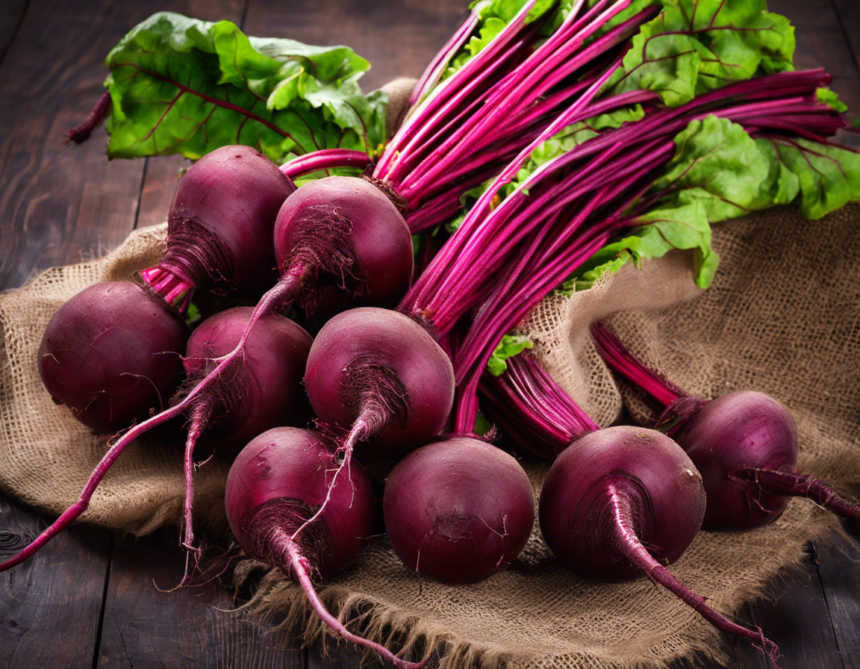Beetroot, also known as “Chukandar” in Hindi, is a versatile and nutritious vegetable that is consumed worldwide for its health benefits and culinary uses. This vibrant red root vegetable is not just visually appealing but also packed with essential nutrients that can contribute to overall well-being. In this comprehensive guide, we will delve into the various aspects of beetroot including its nutritional profile, health benefits, culinary uses, and potential side effects.
Nutritional Profile of Beetroot
Beetroot is a nutritional powerhouse, packed with essential vitamins, minerals, and antioxidants. Here is a breakdown of the key nutrients found in beetroot:
1. Vitamins
- Vitamin C: Beetroot is a good source of vitamin C, an antioxidant that boosts the immune system and promotes skin health.
- Folate: This B vitamin is important for cell division and helps in the production of red blood cells.
- Vitamin B6: Essential for brain development and function, as well as immune system health.
2. Minerals
- Potassium: Helps regulate blood pressure and fluid balance in the body.
- Iron: Important for the formation of hemoglobin and oxygen transport in the blood.
- Magnesium: Supports muscle and nerve function, as well as immune system health.
3. Antioxidants
Beetroot is rich in antioxidants like betalains, which have anti-inflammatory and detoxifying properties. These compounds help protect cells from damage and reduce the risk of chronic diseases.
Health Benefits of Beetroot
1. Supports Heart Health
- Lowers Blood Pressure: The nitrates in beetroot are converted into nitric oxide in the body, which helps dilate blood vessels and improve blood flow, thus lowering blood pressure.
- Improves Cholesterol Levels: Beetroot consumption has been linked to lower LDL cholesterol levels and reduced risk of heart disease.
2. Boosts Exercise Performance
- Enhances Endurance: The nitrates in beetroot can improve oxygen use and increase stamina during exercise.
- Reduces Muscle Soreness: Beetroot juice consumption may help reduce muscle soreness and recovery time post-exercise.
3. Supports Detoxification
- Liver Health: Beetroot contains compounds that support liver function and aid in detoxification processes.
- Colon Health: The fiber in beetroot promotes healthy digestion and may reduce the risk of colon cancer.
Culinary Uses of Beetroot
Beetroot is a versatile vegetable that can be incorporated into a variety of dishes. Here are some popular culinary uses of beetroot:
- Raw: Grated beetroot can be added to salads for a pop of color and flavor.
- Roasted: Roasting beetroot enhances its natural sweetness and depth of flavor.
- Juiced: Beetroot juice is a popular health drink that can be consumed on its own or mixed with other fruits and vegetables.
- Pickled: Pickled beetroot is a popular condiment that adds tanginess to sandwiches and salads.
- Baked: Beetroot can be baked into chips or used in baked goods like cakes and brownies for added moisture and nutrition.
Potential Side Effects of Beetroot
While beetroot is generally safe for consumption, there are some potential side effects to be aware of:
– Reddish Stools and Urine: Eating beetroot can temporarily cause discoloration of urine and stools due to the presence of pigments called betalains.
– Kidney Stones: Individuals with a history of kidney stones may need to limit their intake of beetroot due to its oxalate content.
– Allergic Reactions: Some people may be allergic to beetroot, experiencing symptoms like itching, rashes, or swelling.
FAQs (Frequently Asked Questions)
Q1: Is beetroot good for weight loss?
A: Yes, beetroot is low in calories and high in fiber, making it a filling and nutritious option for weight loss diets.
Q2: Can I eat beetroot raw?
A: Yes, beetroot can be consumed raw by grating or thinly slicing it for salads or coleslaws.
Q3: How much beetroot juice should I drink in a day?
A: It is recommended to limit beetroot juice intake to 1-2 cups per day to avoid excessive consumption of nitrates.
Q4: Is beetroot beneficial for skin health?
A: Yes, the antioxidants and vitamin C in beetroot can help promote healthy skin by fighting free radicals and boosting collagen production.
Q5: Can beetroot interact with medications?
A: Beetroot may interact with medications like blood pressure-lowering drugs, so consult your healthcare provider if you have concerns.
Conclusion
In conclusion, beetroot is a nutritious vegetable with a range of health benefits, from supporting heart health and exercise performance to aiding in detoxification processes. By incorporating beetroot into your diet in various forms, you can harness its nutrient content and enjoy its unique flavor profile. Remember to consume beetroot in moderation and be mindful of any potential side effects, especially if you have existing health conditions. Embrace the vibrant hues and wholesome goodness of beetroot for a healthier lifestyle.


Leave a Reply